FACES OF THE ECONOMY: Ramy Sader
Faces of Economy – Lebanon
FACES OF THE ECONOMY: Ramy Sader
There are 1.4 million workers in Lebanon – this is the story of one of them.
For patrons of Lina’s at the ABC Mall, one can always depend on finding the smiling face and prompt service of Ramy Sader.
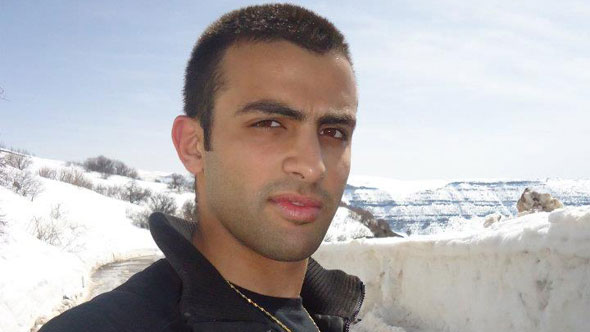
FACES OF THE ECONOMY: Ramy Sader
There are 1.4 million workers in Lebanon – this is the story of one of them.
By T.K. Maloy
BEIRUT: For patrons of Lina’s at the ABC Mall, one can always depend on finding the smiling face and prompt service of Ramy Sader.
A student working to support himself while studying interior architecture at University De Saint Esprit-Kasslik, Sader has developed spot-on people skills and has an inherent charisma that will stand him in good stead when he enters his chosen profession.
As a working student, Sader jokes about being on the six year plan at U.S.E.K.
“Each credit cost $235 and the minimum credits number you can take on a semester is 12, and that’s what I’m taking because I honestly can’t pay more than that!”
“Each credit cost $235 and the minimum credits number you can take on a semester is 12, and that’s what I’m taking because I honestly can’t pay more than that!”
Thus far he is three years through and expects at least three years of classroom at his current budget.
“I’ve chosen my major, interior architecture, not because my dad’s job as a carpenter or my brother’s major which architecture – it is because in design we study our own way, by drawing, by projects,” Sader said. “We sometimes use books more than other major, but it’s the using them that makes the difference, we use books to be inspired by what the author tells us, not to memorize and copy what he wrote or draw.
In the meanwhile, though all of 21, Sader is on his tenth different work position, not because he is unreliable, just the opposite, he started working at the tender age of 13, amassing quite a resume by the time he graduated high school.
“Our family financial situation was pretty good when I was a young boy, but when I was at the age of seven, we had to move to another house, another school also, since my father had few work problems. At the age of 13, I started to work as a cameraman assistant, at the 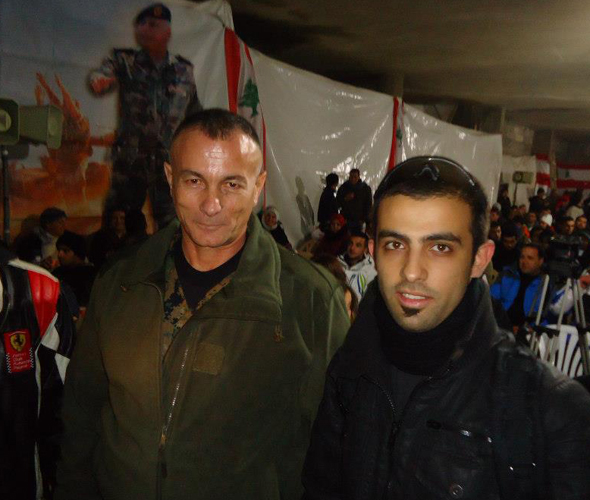 Stand By studio, for 20000LL/day, of course during the weekends (because of school).” Sader said.
Stand By studio, for 20000LL/day, of course during the weekends (because of school).” Sader said.
“During the holidays and the summer of that year (2005) I also worked at a supermarket at Adonis ($350/month), Zouk Mosbeh, this was the first job where I got to meet people, since working with the cameraman was just to pick up the cameras and the cables and stuff.”
His resume continued apace, with working the next school year at the A.T.C.L. (Automotive Tour Club du Liban) at Jounieh on the tennis court as a ball boy ($10 day),
“This job was one of the best, even if it was a hot and a hard job for a kid, I had the chance to spend it with my friends having fun, especially like going swimming in the complex pool, where we had to sneak in without being caught by the security.”
“In the summer of 2006, during the war, I was also working at the supermarket,” Sader said.
That summer a concerted Israeli bombing campaign damaged a large percentage of Lebanon’s infrastructure, including roads and bridges, and also effectively closed the seaport and airport. The large scale destruction was in reprisal for Hezbollah kidnappings of Israeli soldiers. In response to the bombing, Hezbollah launched thousands of missiles into northern Israel.
“The war of 2006 had a major result on our way of living, since my aunt was living in Hadath, which is a near southern suburb of Dahiye, one of the most bombarded areas at that time, so they had to come and spend the time safely with us, so our expenses went higher demanding more independence of me,” he said.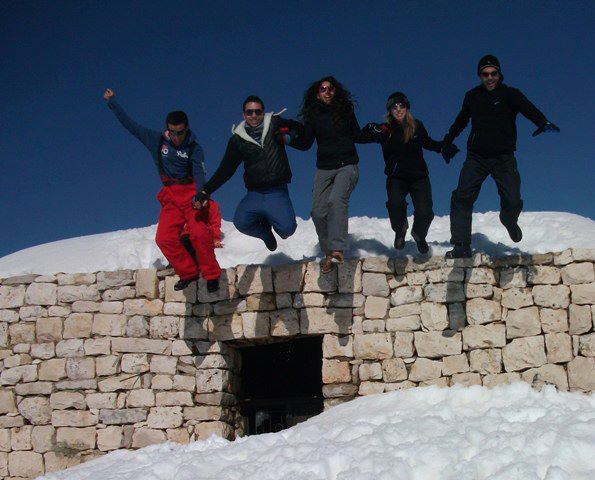
“Dad had a lot of payments with the new number of people added to the house, that was an extra five people, yet it was a good summer then, I got to spend every day after work with my cousins, since the work.”
Sader added, however, that commerce suffered throughout the country, noting that “people were scared to even go to the supermarket.”
For Sader, who was 14-years old at the times, the money he made from his work acted as his pocket money and lessened somewhat the financial strain on his family.”
“That means I didn’t take anything from dad or mum,” said Sader proudly.
The work list continues!
“At the summer of 2007, my summer job was at what we call “the network” ($400/month), or the Cyber Café. During the 2007-2008 school years, I was working as a birthday’s animator for $10/day, and later at the summer of 2008 I worked at the Subway restaurant ($1.60/h.), at Jeita,” the U.S.E.K student noted.
“The school year 2008-2009 I was still working as an animator, and my summer job was at the Sultan Bakery ($500$/month) on Jounieh Highway,” Sader said.
“Then, 2010-2011 was my school graduating year so I kept working as animator but only infrequently since that was my big year at school.”
Though a hard worker, the spirited Sader did not want to entirely miss out on that once in a lifetime high school senior year.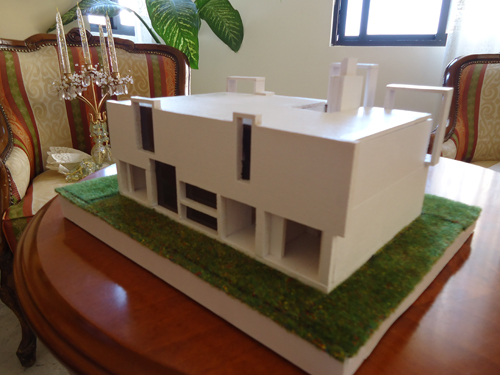
After graduation, Sader again worked at the Sultan Bakery, but after two months — “since I was a hardworking guy, I was promoted to ‘assistant team-leader’ ($600/month) and then also after another two months, promoted to a ‘team-leader’ at the Zouk Mosbeh branch for $800/month,” he recounts.
“This was a great opportunity for me to be able to pay my university payments.”
This was followed by a brief stint at the Sunrise Hotel, Sahel Aalma, Jounieh, in 2011, for $480/month but the pocket tips were very good, so my monthly salary was almost at $900,” Sader said.
Ultimately he did not enjoy the work, however, and left, working by the Christmas holidays at the Salsa restaurant in Ghazir, and then started working at Lina’s café for $2.25/h plus tips, “so the more hours I work, the more I earn,” Sader said.
He considers Lina’s, a popular Lebanese eatery situated in many parts of Beirut and suburbs, one of his most valuable jobs yet, noting “I meet many different types of people — and that has given me one of the best things I’ve ever earned, communications skills.”
For Sader, his crew at Linas is like a second family.
My co-workers are great, and more, my colleagues are now my family, we work hard together, laugh together, and make sure we run a tight ship and that customer comes first,” Sader said that working since the age of 13 has “not been bad at all.”
He noted that meeting so many various types of people, owners and work colleagues, changing his personality for the better.
Sometimes it naturally strikes him as inequitable that he must work harder than his more well-to-do fellow students, but he shoulders up that thought and marches on.
“It’s not that bad growing up earlier than others,” he said. “After meeting so many people, now I know how to see the difference between the varieties in society, in order to know how to act with them, it’s not about becoming an actor; rather it is an issue of knowing how to behave in front of every person I meet.”
“The best way to do that is smiling and laughing,” said the naturally friendly Sader.
“When I was at school, it was pretty easy to work and study, since work was only at weekends, and I was a good student,” he said. “But problems started when I went to the university, especially because a major like Interior design requires a lot of effort and time.”
Sometimes it naturally strikes him as inequitable that he must work harder than his more well-to-do fellow students, but he shoulders up that thought and marches on.
“Some students are having twice the time I have for projects, still, for now I’m doing a lot better job (at school) since my first year,” Sader explained “It’s called adapting with a way of living, in my case it’s going to the university, then to work, then studying, then sleeping, each and every day of the week.”
Sader notes that given work and school demands each and every minute counts.
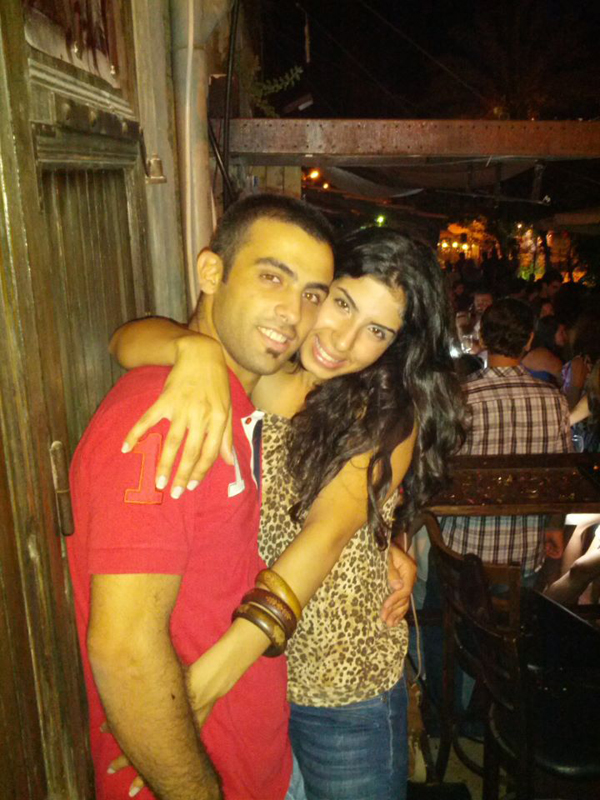
“My life is on a kind of pattern, university-work-sleep, with the exception of going to a party sometimes, dinner, seeing my girlfriend more than two times at a week, hanging out with friends, hiking trips,” he said.
“But how do I time manage? Simple, I make a plan for everything, each and every minute counts for me.”
He added that, “My favorite time for studying is between 12 am till 5 am, I know it’s not 100 percent good, but it’s my time, where everything is quiet, and then I can do everything with full energy.”
Still, Sader feels independent and not that he is living a fixed “routine.”
“I don’t believe that because every day I’m doing something new, I’m learning something new, I’m working in a different way.”
EDITOR’S NOTE: Every two weeks Marcopolis will profile a different hardworking citizen. Nominations can be sent by you, friends, family or even coworkers, for inclusion in the “Face” series. Tell us your story. Send to contributing business correspondent: T.K. Maloy: tkmaloy@gmail.com